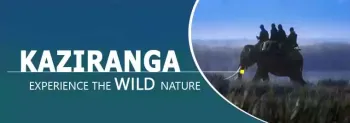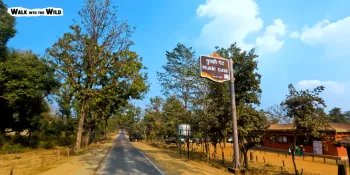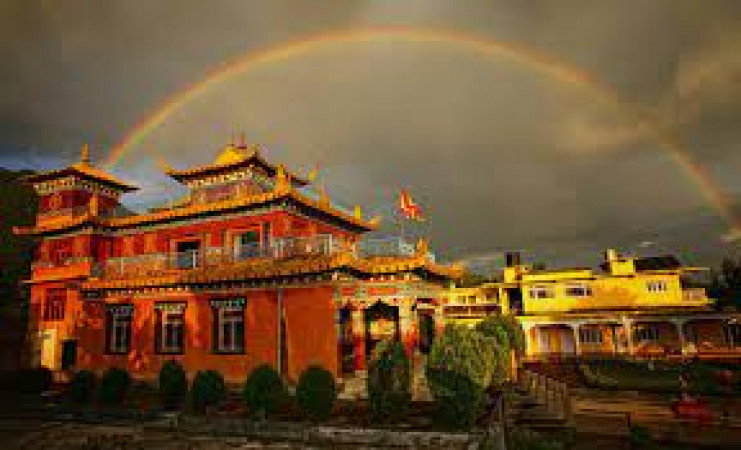
Deer Park Institute
Duration
2 to 4 Days
2 to 4 Days
Best time to visit
Mar-Jun, Sep-Nov
Mar-Jun, Sep-Nov
Theme
Hill Station, Adventure, Religious
Hill Station, Adventure, Religious
Deer Park Institute Travel Guide
Deer Park Institute is a hidden gem nestled in the lush greenery of Himachal Pradesh, India. This serene destination holds immense historical and cultural significance as it is known for being a center for study and practice of classical Indian wisdom traditions. The institute attracts visitors seeking spiritual enlightenment and knowledge in the peaceful Himalayan foothills.Top Attractions in Deer Park Institute
- Attend spiritual lectures and workshops
- Participate in meditation and yoga retreats
- Explore nearby monasteries and temples
- Experience traditional Indian music and dance performances
Deer Park Institute is Famous for
Spiritual enlightenment and the study of classical Indian wisdom traditions.Top Attractions in Deer Park Institute
- Join meditation sessions led by experienced teachers
- Engage in discussions on philosophy and spirituality
- Enjoy the serene surroundings for introspection and self-discovery
What's Great about Travelling to Deer Park Institute?
- Perfect for spiritual seekers and those seeking inner peace
- Unique cultural experiences and traditional teachings
- Tranquil setting amidst nature for relaxation and reflection
What's Not So Great about Travelling to Deer Park Institute?
- Not ideal for travelers seeking a bustling city experience
- Limited dining and accommodation options
- May not appeal to those not interested in spiritual pursuits
Travel Tips for Deer Park Institute
- Visitors may require a permit for certain activities, so check in advance
- Transportation options are limited, so plan your travel arrangements beforehand
- Respect the local customs and traditions during your stay
Important Deer Park Institute trip information
- Ideal Duration: A week to fully immerse in the spiritual teachings
- Best Time to Visit: Spring and autumn for pleasant weather
- Nearby Airports and Railway Stations: The nearest airport is in Dharamshala and the closest railway station is Pathankot
Per Person
18,500
*EXCLUDING APPLICABLE TAXES 5.0 Ratings
( 445 Reviews )
( 445 Reviews )
Per Person
35,000
*EXCLUDING APPLICABLE TAXES 5.0 Ratings
( 445 Reviews )
( 445 Reviews )
Per Person
2,82,000
*EXCLUDING APPLICABLE TAXES 5.0 Ratings
( 445 Reviews )
( 445 Reviews )
Per Person
24,800
*EXCLUDING APPLICABLE TAXES 4.8 Ratings
( 37 Reviews )
( 37 Reviews )
Per Person
22,500
*EXCLUDING APPLICABLE TAXES 4.8 Ratings
( 37 Reviews )
( 37 Reviews )
Per Person
14,250
*EXCLUDING APPLICABLE TAXES 5.0 Ratings
( 445 Reviews )
( 445 Reviews )
FAQ's on Deer Park Institute
Q1: What is the best time to visit Deer Park Institute?
The best time to visit Deer Park Institute is during the spring and autumn months, from March to May and September to November, when the weather is pleasant and ideal for outdoor activities. These periods also coincide with various cultural events and festivals that showcase the rich heritage of the region. Summer can be hot, and winter can be cold, so plan your visit accordingly.
Q2: Do I need a visa to travel to Deer Park Institute?
Tourists traveling to Deer Park Institute typically need a tourist visa. However, some nationalities may be eligible for visa-on-arrival or visa-free entry. It's important to check the specific visa requirements based on your nationality before planning your trip. Make sure your passport is valid for at least six months beyond your intended stay.
Q3: What are the must-visit attractions in Deer Park Institute?
Deer Park Institute is known for its serene monasteries, lush landscapes, and spiritual retreats. Must-visit attractions include the Namdroling Monastery, Tashi Jong Monastery, Bir Billing for paragliding, and Kangra Fort for history enthusiasts. Explore the tea gardens in Palampur, go trekking in the Dhauladhar Range, or attend meditation retreats at various centers. The natural beauty and cultural richness of Deer Park Institute offer a unique travel experience.
Q4: Is Deer Park Institute a safe place to travel?
Deer Park Institute is generally a safe destination for travelers. However, like any other place, it's advisable to take standard precautions such as safeguarding your belongings, staying alert in crowded areas, and following local guidelines. Avoid isolated areas at night and be respectful of local customs. In case of emergency, know the contact information for the nearest embassy or consulate.
Q5: What is the local currency in Deer Park Institute and can I use credit cards?
The local currency in Deer Park Institute is the Indian Rupee (INR). ATMs are available in major towns like Dharamshala and Bir, but it's recommended to carry cash in smaller denominations for local markets. Credit cards are accepted in some hotels, restaurants, and larger stores, but it's advisable to have cash on hand for smaller establishments and local markets.
Q6: What is the local cuisine like in Deer Park Institute?
The cuisine in Deer Park Institute is a blend of Tibetan, Indian, and Himachali flavors. Enjoy momos (dumplings), thukpa (noodle soup), butter tea, and traditional Tibetan bread. Vegetarian options are widely available, reflecting the local Buddhist culture. Don't miss trying local delicacies like Sidu (steamed bread) and Madra (a spicy chickpea curry). Be mindful of your spice tolerance levels, as Himachali cuisine can be flavorful and sometimes spicy.
Q7: What transportation options are available in Deer Park Institute?
Transportation in Deer Park Institute includes buses, taxis, and private car rentals. Public buses connect major towns like Dharamshala, Bir, and Palampur, offering an affordable way to travel within the region. Taxis are available for shorter distances and can be hired for day trips or sightseeing tours. Car rentals provide flexibility for exploring remote areas at your own pace. Additionally, auto-rickshaws and cycle rickshaws are common for short rides in local areas.
Q8: Are there any cultural norms or etiquette I should be aware of when visiting Deer Park Institute?
When visiting Deer Park Institute, it's important to respect local customs and traditions. Dress modestly, especially when visiting religious sites or monasteries. Remove your shoes before entering temples or homes. Seek permission before taking photographs of locals or in sacred places. Greet people with a respectful "Namaste" or "Tashi Delek" (in Tibetan). Avoid public displays of affection and be mindful of your behavior in public spaces. Participate in local customs and festivals with an open mind to immerse yourself in the rich cultural heritage of Deer Park Institute.
Q9: I am a travel agent. How can I buy travel leads of Deer Park Institute?
Register yourself as a travel agent at agents.tripclap.com and then you can buy travel leads to Deer Park Institute once your account is approved. For more details contact our support team at +91-8069186564 or support@tripclap.com
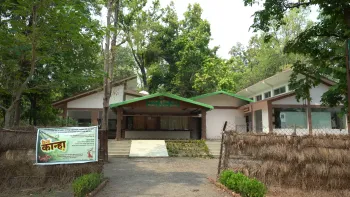
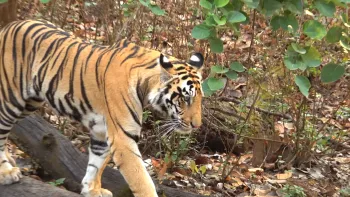

![Meghalaya with kaziranga 6N/7D tour package LD- 517577 [Based on 2 Adults]](https://static.tripclap.com/uploads/package/350X200/1763018166-1763018166-1051e.webp)
